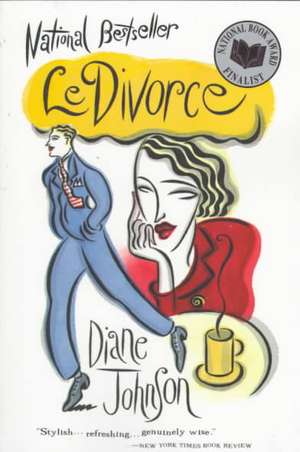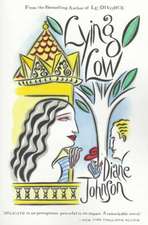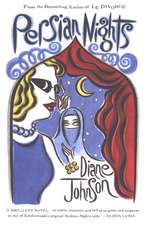Le Divorce: William Abrahams Book
Autor Diane Johnsonen Limba Engleză Paperback – 31 dec 1997 – vârsta de la 18 ani
In Le Divorce, Diane Johnson delightfully recounts the adventures of two sisters from California who make a modern pilgrimage to the City of Light. Pregnant and abandoned by her French husband, Roxeanne Walker de Persand turns to her younger sister, Isabel, for support, while the powerful Persand family exerts subtle but firm control over her decision whether or not to divorce. Complicating matters is the disposition of a family heirloom, a painting in Roxy's possession that is suddenly discovered to be worth millions. In the midst of a variety of schemes, the stakes are suddenly raised by a crime of passion, disrupting everyone's motives and plans.
Not since Edith Wharton penned her brilliant portraits of Americans abroad has an American novelist so perfectly captured the possibilities and perils of succumbing to the allure of Paris.
Not since Edith Wharton penned her brilliant portraits of Americans abroad has an American novelist so perfectly captured the possibilities and perils of succumbing to the allure of Paris.
Preț: 123.27 lei
Nou
Puncte Express: 185
Preț estimativ în valută:
23.60€ • 25.64$ • 19.83£
23.60€ • 25.64$ • 19.83£
Carte disponibilă
Livrare economică 31 martie-14 aprilie
Preluare comenzi: 021 569.72.76
Specificații
ISBN-13: 9780452277335
ISBN-10: 0452277337
Pagini: 309
Dimensiuni: 136 x 203 x 23 mm
Greutate: 0.26 kg
Editura: Plume Books
Seria William Abrahams Book
ISBN-10: 0452277337
Pagini: 309
Dimensiuni: 136 x 203 x 23 mm
Greutate: 0.26 kg
Editura: Plume Books
Seria William Abrahams Book
Notă biografică
Diane Johnson is the author of the bestselling novel Le Divorce, a 1997 National Book Award finalist, as well as twelve other books, including the novels Persian Nights, Health and Happiness, Lying Low, The Shadow Knows, and Burning (all available in Plume editions). She divides her time between San Francisco and Paris.
Descriere
In the grand tradition of Edith Wharton, "Le Divorce" delightfully recounts the adventures of two sisters from California who make a modern pilgrimage to Paris, the City of Light. "Sexy, graceful, and funny".--"New York Review of Books".



















